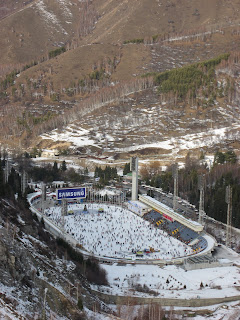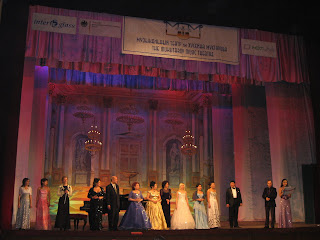
During the holidays I took a short trip to Illinois. There I became acquainted with a new service – mobile notaries. We needed to have a document notarized and as always, were on the run. Instead of canceling our planned museum visit to go find a notary, we were able to call up a mobile notary, who would come to the museum on his bicycle to meet us. The service, including his signature, cost $5. And he showed up right on time. Very cool.
In Illinois, I took a Greyhound bus from Chicago to a rural town 1.5 hours away. I’ve taken enough Greyhounds in my life to know that the bus stations tend to be a collection point for the down and out in society. But it really disturbed me to see that on both the buses I took, a good 80 to 90 percent of the passengers were African American. That is in far disproportion to their actual representation in the population there and is a sign of their disproportionate overcrowding into the marginal segments of society.
Many people were overweight and unhealthy. At one 11:30 a.m. stop at a convenience store, the woman next to me ate Reeses Peanut Butter cups with a soda, the overweight woman across the aisle had a whole bag of junk, washing down Ritz Bitz with chocolate, and the man behind me crunched on Fritos while sipping a large soda.
While downtown Chicago is beautiful, the inner city areas where many of the passengers disembarked were run-down and depressing. They looked much worse than many areas of Kyrgyzstan.
It’s scary how in America, it’s possible for middle and upper class people to live with virtually no contact with these types of neighborhoods, with this type of life. It’s possible to almost forget that people live this way. And most people probably prefer to forget, because to admit such inequalities would be shameful.
In Illinois, I took a Greyhound bus from Chicago to a rural town 1.5 hours away. I’ve taken enough Greyhounds in my life to know that the bus stations tend to be a collection point for the down and out in society. But it really disturbed me to see that on both the buses I took, a good 80 to 90 percent of the passengers were African American. That is in far disproportion to their actual representation in the population there and is a sign of their disproportionate overcrowding into the marginal segments of society.
Many people were overweight and unhealthy. At one 11:30 a.m. stop at a convenience store, the woman next to me ate Reeses Peanut Butter cups with a soda, the overweight woman across the aisle had a whole bag of junk, washing down Ritz Bitz with chocolate, and the man behind me crunched on Fritos while sipping a large soda.
While downtown Chicago is beautiful, the inner city areas where many of the passengers disembarked were run-down and depressing. They looked much worse than many areas of Kyrgyzstan.
It’s scary how in America, it’s possible for middle and upper class people to live with virtually no contact with these types of neighborhoods, with this type of life. It’s possible to almost forget that people live this way. And most people probably prefer to forget, because to admit such inequalities would be shameful.
















